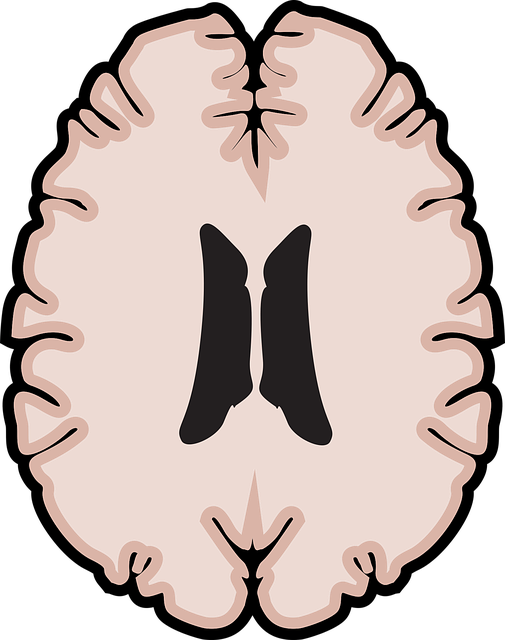Post-Traumatic Stress Disorder (PTSD) is a severe mental health condition requiring specialized treatment, available through Denver post-traumatic stress disorder therapy specialists. Diagnosis involves clinical interviews and psychological tests, leading to tailored treatments like CBT, EMDR, and exposure therapy. Denver's robust network of mental health professionals offers diverse therapies, including holistic approaches, ensuring personalized plans for each patient. Regular progress reviews, self-care practices, and education empower individuals to manage PTSD effectively while fostering a supportive community environment.
“Navigating mental health care can be daunting, especially for those dealing with Post-Traumatic Stress Disorder (PTSD). This comprehensive guide aims to demystify the process in Denver. We delve into the understanding of PTSD, its symptoms, and diagnosis, followed by an exploration of local therapy resources tailored to this specific condition.
The article offers a step-by-step approach to creating personalized treatment plans, emphasizing self-care strategies and community support systems vital for recovery. For those seeking Denver Post-Traumatic Stress Disorder therapy, this is your go-to resource.”
- Understanding Post-Traumatic Stress Disorder (PTSD): Symptoms and Diagnosis
- Navigating Treatment Options: Denver's Therapy Resources for PTSD
- Creating a Personalized Treatment Plan: Step-by-Step Guide
- Supporting Recovery: Self-Care Strategies and Community Resources
Understanding Post-Traumatic Stress Disorder (PTSD): Symptoms and Diagnosis

Post-Traumatic Stress Disorder (PTSD) is a mental health condition that can affect individuals after they experience or witness a traumatic event. It’s characterized by intense, disturbing thoughts and feelings that interfere with daily functioning. Understanding PTSD involves recognizing its symptoms, which can include flashbacks, nightmares, severe anxiety, depression, and intense emotional reactions to reminders of the trauma. These symptoms often persist for more than a month, affecting work, relationships, and overall quality of life.
Diagnosis typically begins with a comprehensive evaluation by a mental health professional in Denver who specializes in PTSD therapy. They’ll assess the individual’s history, symptoms, and their impact on daily life. This process may involve structured clinical interviews, questionnaires, and psychological tests to pinpoint the severity and specific nature of the disorder. Early intervention is crucial for effective management, emphasizing the importance of seeking help from a qualified therapist experienced in Denver Post-Traumatic Stress Disorder therapy. Through evidence-based treatments like cognitive behavioral therapy (CBT) or eye movement desensitization and reprocessing (EMDR), individuals can learn coping skills development, emotional regulation strategies, and self-care practices to overcome PTSD and improve their overall well-being.
Navigating Treatment Options: Denver's Therapy Resources for PTSD

Navigating treatment options for Post-Traumatic Stress Disorder (PTSD) in Denver can be a daunting task, but numerous resources are available to support individuals on their path to recovery. The city boasts a thriving network of mental health professionals specializing in PTSD therapy, offering various approaches like cognitive behavioral therapy (CBT), eye movement desensitization and reprocessing (EMDR), and exposure therapy. Many organizations, such as the local Stress Management Workshops Organization, also provide valuable resources and support groups tailored to those dealing with anxiety relief and stress management.
Beyond traditional therapy, Denver’s vibrant community embraces innovative solutions. Art therapy, animal-assisted therapy, and mindfulness practices are among the holistic treatments gaining popularity. For those seeking more comprehensive approaches, the city’s mental health clinics often integrate complementary therapies into their care plans. Additionally, Mental Health Policy Analysis and Advocacy groups actively push for better access to quality PTSD treatment, ensuring Denver residents have diverse options aligned with their unique needs.
Creating a Personalized Treatment Plan: Step-by-Step Guide

Creating a Personalized Treatment Plan for Mental Illness involves a step-by-step approach tailored to individual needs. The journey begins with Denver Post-Traumatic Stress Disorder (PTSD) Therapy assessment, where professionals evaluate symptoms and severity, integrating patient history and current state. This comprehensive evaluation forms the foundation for designing an effective treatment strategy.
Next, set clear goals aligned with coping skills development and emotional well-being promotion techniques. Engaging in evidence-based therapies like cognitive behavioral therapy (CBT) or eye movement desensitization and reprocessing (EMDR) can be life-changing, helping individuals process traumatic memories and develop healthy coping mechanisms. Alongside therapy, mental health education programs designed to enhance understanding of one’s condition and available resources are invaluable. Regularly reviewing progress and adjusting the treatment plan based on feedback ensures a dynamic and personalized approach to recovery.
Supporting Recovery: Self-Care Strategies and Community Resources

In the journey towards mental wellness, self-care plays a pivotal role in supporting recovery. Individuals navigating post-traumatic stress disorder (PTSD), depression, or other conditions can enhance their resilience and overall well-being by incorporating effective self-care strategies. Simple yet powerful practices like regular exercise, mindfulness meditation, and maintaining a structured routine can significantly reduce symptoms of stress and anxiety. Engaging in creative outlets, spending time in nature, and connecting with supportive networks are additional stress reduction methods that foster healing.
Community resources, often overlooked, offer valuable assistance in this process. Local support groups provide safe spaces for sharing experiences and building camaraderie among peers facing similar challenges. Mental health professionals in Denver also offer specialized therapy services tailored to address PTSD, depression, and other issues. Furthermore, social skills training programs can empower individuals with the tools necessary to navigate interpersonal interactions confidently, enhancing their overall sense of community and belonging.
In navigating the complex landscape of Denver Post-Traumatic Stress Disorder therapy, understanding your condition, utilizing available resources, and adopting personalized self-care strategies are key. This article has provided insights into recognizing PTSD symptoms and diagnosis, exploring Denver’s rich therapy resources, creating tailored treatment plans, and leveraging community support. By embracing these steps, individuals affected by PTSD can embark on a journey of recovery and rediscover their well-being in the vibrant, bustling city of Denver.














